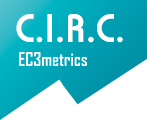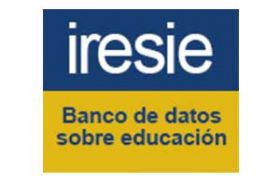Superando los Mitos del Envejecimiento en la Inclusión Educativa. Efectos de las Variables Sociodemográficas en las Motivaciones de los Adultos Maduros para Aprender
Resumen
Palabras clave
Referencias
Antikainen, A., Harinen, P., y Torres, C. A. (2006). In from the margins. Adult education, work and civil society. Rotterdam: Sense Publishers.
Aubert, A., Flecha, A., García, C., Flecha, R., y Racionero, S. (2008).
Aprendizaje dialógico en la Sociedad de la Información. Barcelona:
Hipatia Editorial.
Bandura, A. (1977). Self-efficacy: Toward a unifying theory of behavioral
change. Psychological Review, 84, 191-215.
Biggs, S., Carstensen, L., y Hogan, P. (2012). Social capital, lifelong learning and social innovation. In R. Beard, S. Biggs, D. Bloom, L. Fried, P. Hogan, A. Kalache, y S. Jay Olshansky (Eds.), Global population ageing: Peril or promise? (pp. 39-41). Gneva: Word Economic Forum.
Bjorklund, B. R. (2011). The journey of adulthood (7th ed.). Boston, MA:
Prentice Hall.
Brookfield, S. (2012). The impact of lifelong learning on communities. In D. N. Aspin, J. Chapman, K. Evans, y R. Bagnall (Eds.), Second international handbook of lifelong learning (Part 2, pp. 875-886). New York, NY: Springer
Bye, D., Pushkar, D., y Conway, M. (2007). Motivation, interest, and positive affect in traditional and nontraditional undergraduate students. Adult Education Quarterly, 57(2), 141-158. DOI: 10.1177/0741713606294235
Carré, P. (2000). Motivation for adult education: From engagement to
performance. Document presented at AERC 2000 Conference in
Vancouver (BC), Canada, June 2000. Recuperado de:
http://www.edst.educ.ubc.ca/aerc/2000/carrep1-final.PDF
Chao, R. (2009). Understanding the adult learners’ motivation and barriers to learning. Inaugural Conference Proceedings: Educating the Adult Educator: Quality provision and assessment in Europe, University of
Macedonia, Greece
Chen, L., Kim, Y.S., Moon, P., y Merriam, S.B. (2008), A review and critique of the portrayal of older adult learners in adult education journals, 1980- 2006, Adult Education Quarterly, 59(3), 3-21
Chao, R. (2009). Understanding the adult learners’ motivation and barriers to learning. Inaugural Conference Proceedings: Educating the adult educator: Quality provision and assessment in Europe. Thessalokini:
University of Macedonia
Crawford, D.L. (2004). The Role of Aging in Adult Learning: Implications for instructors in higher education, Hopkins University, School of Education.
De Corte, E. (2003). Transfer as the productive use of acquired knowledge, skills, and motivations. Current Directions in Psychological Science, 12, 142–146
Desjardins, R. (2004). Learning for Well Being: Studies Using the International Adult Literacy Survey, Stockholm: Institute of International Education
European Commission (2017). Year of Adult Education in Europe. Recuperado de: http://ec.europa.eu/epale/es/node/32146
Eurostat. (2016). Educational attainment statistics. Recuperado de:
http://ec.europa.eu/eurostat/web/education-and-training/data/database
Felstead, A. (2010). Closing the age gap? Age, skills and experience of work in Great Britain. Ageing & Society, 30(8), 293–314.
Felstead, A. (2011). The importance of ‘teaching old dogs new tricks’: training and learning opportunities for older workers. In Parry, E. and Tyson, S. (eds), Managing an Age Diverse Workforce. Palgrave Macmillan,
Basingstoke, UK, 89-205.
Ferreira, P. L. (2010). A natureza dos motivos para a formação nos adultos que frequentam cursos EFA (unpublished master dissertation). University of Coimbra.
Ferrier, F., Burke, G., y Selby Smith, C. (2008), Skills Development for a
Diverse Older Workforce, NCVER, Adelaide
Field, J. (2009). Well-being and happiness: Inquiry into the future of lifelong learning (Thematic paper 4). Leicester, UK: National Institute of Adult Continuing Education.
Findsen, B., y Formosa, M. (2011). Lifelong learning in later life. Rotterdam, the Netherlands: Sense Publishers.
Freire, P. (2003). Pedagogía del oprimido, 55a ed., Madrid: Siglo XXI.
Gorges, J., y Kandler, C. (2012). Adults' learning motivation: Expectancy of success, value, and the role of affective memories, Learning and
Individual Differences, 22, 610–617. Doi: 10.1016/j.lindif.2011.09.016
Herzog, A. R., Ofstedal, M. B., y Wheeler, L. M. (2002). Social engagement and its relationship to health. Clinics in Geriatric Medicine, 18, 595-609.
Houle, C. (1974). The Provision of Cost-Compulsory: The relationship between motivation and participation, with special reference to non-traditional forms of study. Prepared for the Organization for Economic Cooperation and Development, Paris.
Hoyert, M. D., y O'Dell, C. (2009). Goal orientation and academic failure in traditional and nontraditional aged college students. College Student Journal, 43(4), 1052-1061.
Hubackova, S., y Semradova, I. (2014). Research Study on Motivation in Adult Education, Procedia - Social and Behavioral Sciences, 159 (2014) 396 – 400. Doi: 10.1016/j.sbspro.2014.12.395
Iñiguez Berrozpe, T., y Marcaletti, F. (2016a). We Are Not a Small Island, We Are the Ocean. Becoming a Student in Mature Age. Comparative Study between Italy and Spain. Research on Ageing and Social Policy, 4(2), 56-95. doi: 10.17583/rasp.2016.2080. ISSN: 2014-671X.
Iñiguez Berrozpe, T., y Marcaletti, F. (2016b). Participación de los Adultos
Maduros en Actividades Educativas en España: Obstáculos y Factores
Motivacionales, Acciones e Investigaciones Sociales, 36, 141-168.
Jancewicz, A., Marcaletti, F., Iñiguez, T., Koutra, K., Bonde, H., Tunç, E., y
Rossi, S. (2015). Innovations in Mature Adult Learning – IMAL project
final report, Grundtvig Programme, European Commission. Recuperado
de: https://ec.europa.eu/epale/sites/epale/files/final_report_i.pdf
Kanfer, R., y Ackerman, P. L. (2004). Aging, adult development, and work
motivation. Academy of Management Review, 29, 440–458
Kim, A., y Merriam, S. (2004). Motivation for learning among older adults in a learning in retirement institute. Educational Gerontology, 30, 441–455
Knowles, M. S. (1980). The Modern Practice of Adult Education: From
pedagogy to andragogy. New York: Cambridge Books.
Kyndt, E., Michielsen, M., Van Nooten, L., Nijs, S., y Baert, H. (2011): Learning in the second half of the career: stimulating and prohibiting reasons for participation in formal learning activities. International Journal of Lifelong Education, 30(5), 681-699
Marcaletti, F. (2012). Paradigmi e approcci nella gestione dell’invecchiamento delle forze di lavoro: un riesame critico. Sociologia del Lavoro, 125, 33- 51. doi: 10.3280/SL2012-125002
Mayo, P. (2009). Flying below the radar? Critical approaches to adult education, in M. W. Apple, W. Au y L. A. Gandin (Eds.), The Routledge international handbook of critical education (pp. 269-280). New York, NY: Routledge.
Merriam, S., y Kee, Y. (2014). Promoting Community Wellbeing: the case for lifelong learning for older adults. Adult Education Quarterly, 64 (2), 128- 144.
Morris, E. A., Brooks, P. R., y May, J. L. (2003). The relationship between
achievement goal orientation and coping style: Traditional vs.
nontraditional college students. College Student Journal, 37(1), 3-8.
Murphy, H., y Roopchand, N. (2003). Intrinsic motivation and self-esteem in traditional and mature students at a post-1992 university in thenorth-east of England. Educational Studies, 29(2/3), 243-259. doi.org/10.1080/03055690303278.
Murray, W.C., Smith, L., y Nielson, K. (2010). Exploring Motivational and
Learning Differences with Mature Students in Post-Secondary Education,
Collected Essays on Teaching and Learning, III, 189-194.
Oliveira, A.L. (2013). Promoting Conscious and Active Learning and Aging. How to face current and future challenges? (Universidade de Coimbra) Recuperado de: http://www.uc.pt/ imprensa_uc.
Pring, R. (1999). Politics: Relevance of the humanities, Oxford Review of
Education 25 (1-2), 71-87
Reder, S. (2009). Adult Literacy Development and Economic Growth. National Institute for Literacy, Adult Literacy Development and Economic Growth, Washington, DC. Avaliable at: https://lincs.ed.gov/publications/pdf/AdultLiteracyDevEcoGrowth.pdf
Reischmann, J. (2014). Lifelong and Lifewide Learning - a Perspective. In:
Suwithida Charungkaittikul (ed): Lifelong Education and Lifelong Learning in Thailand. Bangkok, p. 286-309.
Rothes, A., Lemos, M.S., y Gonçalves, T. (2014). Motives and beliefs of
learners enrolled in adult education, Procedia - Social and Behavioral Sciences, 112, 939 – 948
Skolverket. (2000). Lifelong Learning and Life wide Learning. (Stockholm, The National Agency for Education).
Schmidt-Hertha, B., Tikkanen, T., y Hansen, L. (2009), Education & learning of older adults, discussion paper, ESREA electronic network, Finland.
Schunk, D. H. (1991). Self-efficacy and academic motivation. Educational
Psychologist, 26, 207-231.
Smith, E., Smith A., y Smith C. (2010). Old dogs, new tricks. Journal of
Workplace Learning, 22(5), 277-291
Steinberg, L. C. (2006). The graying freshman: examining achievement
motivation goals and academic performance in traditional and
nontraditional undergraduate students. (doctoral dissertation).
Recuperado de: Proquest (1438849).
Stipek, D. J. (1996). Motivation and instruction. En D. C. Berliner, y R. C.
Calfee, (Eds.), Handbook of educational psychology (1st ed., pp. 85–
. New York: Macmillan
Taylor, P. E., y Urwin, P. (2001). Age and participation in vocational education and training. Work, Employment and Society, 15(4), 763–779.
UNESCO (2010). Global Report on Adult Learning and Education, Hamburg: UIL.
Urwin, P. (2006). Age discrimination: legislation and human capital
accumulation. Employee Relations, 28(1), 87-97
Van Vianen, A.E.M. (1997). A social information processing perspective on
transfer of attitudes towards continued training. Applied Psychology, 46
(4), 354-359.
Enlaces refback
- No hay ningún enlace refback.
Indexación:
Factor de impacto JCI: 0,81. categoría Q4 |  |  |
 |  |  |
 |  |  |
|  |  |
 |  |
|
-
| ISSN: 1889-4208 / e-ISSN: 1989-4643 | |
 Este trabajo se autoriza con una licencia Creative Commons Asignación 4.0 Internacional.
Este trabajo se autoriza con una licencia Creative Commons Asignación 4.0 Internacional.


